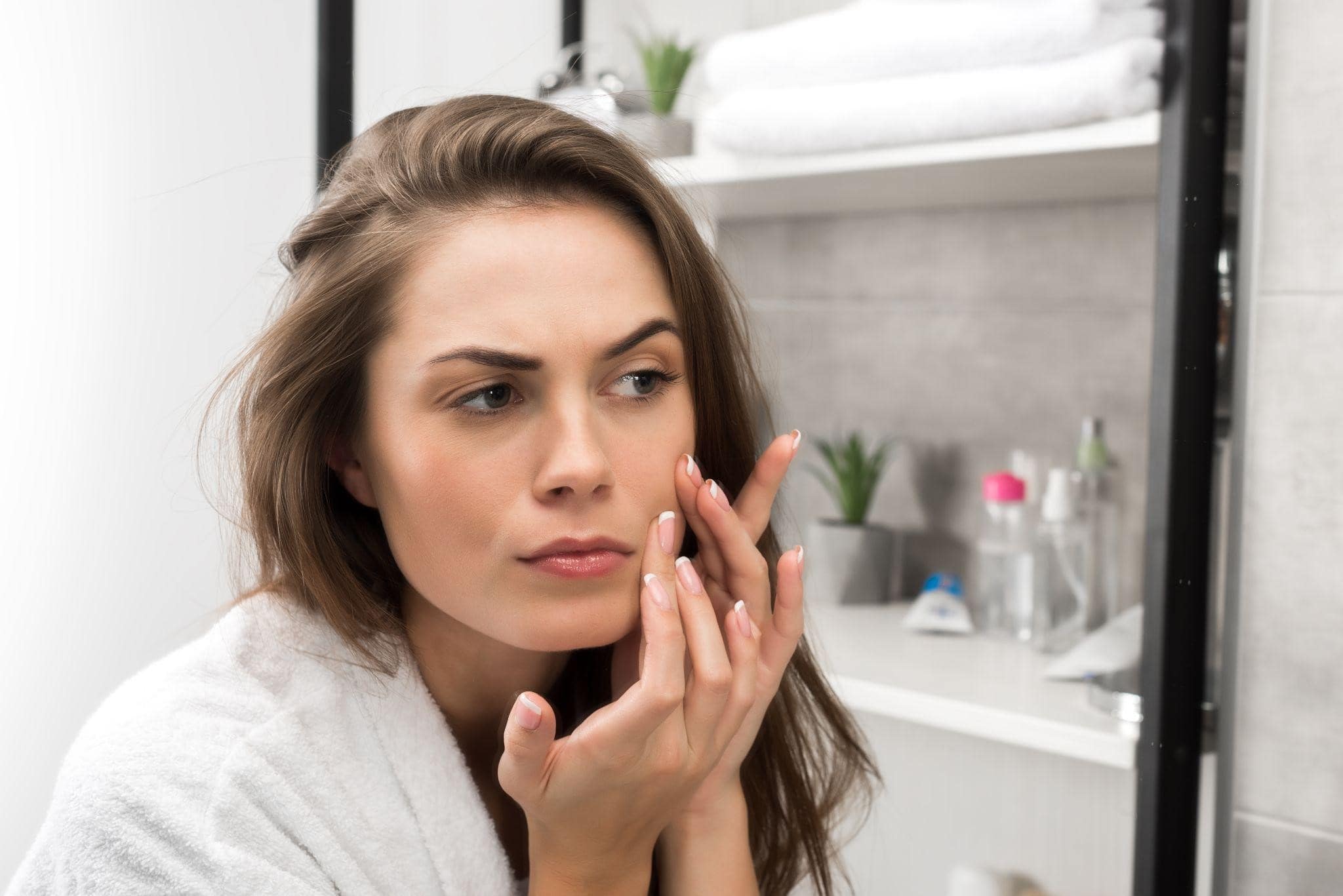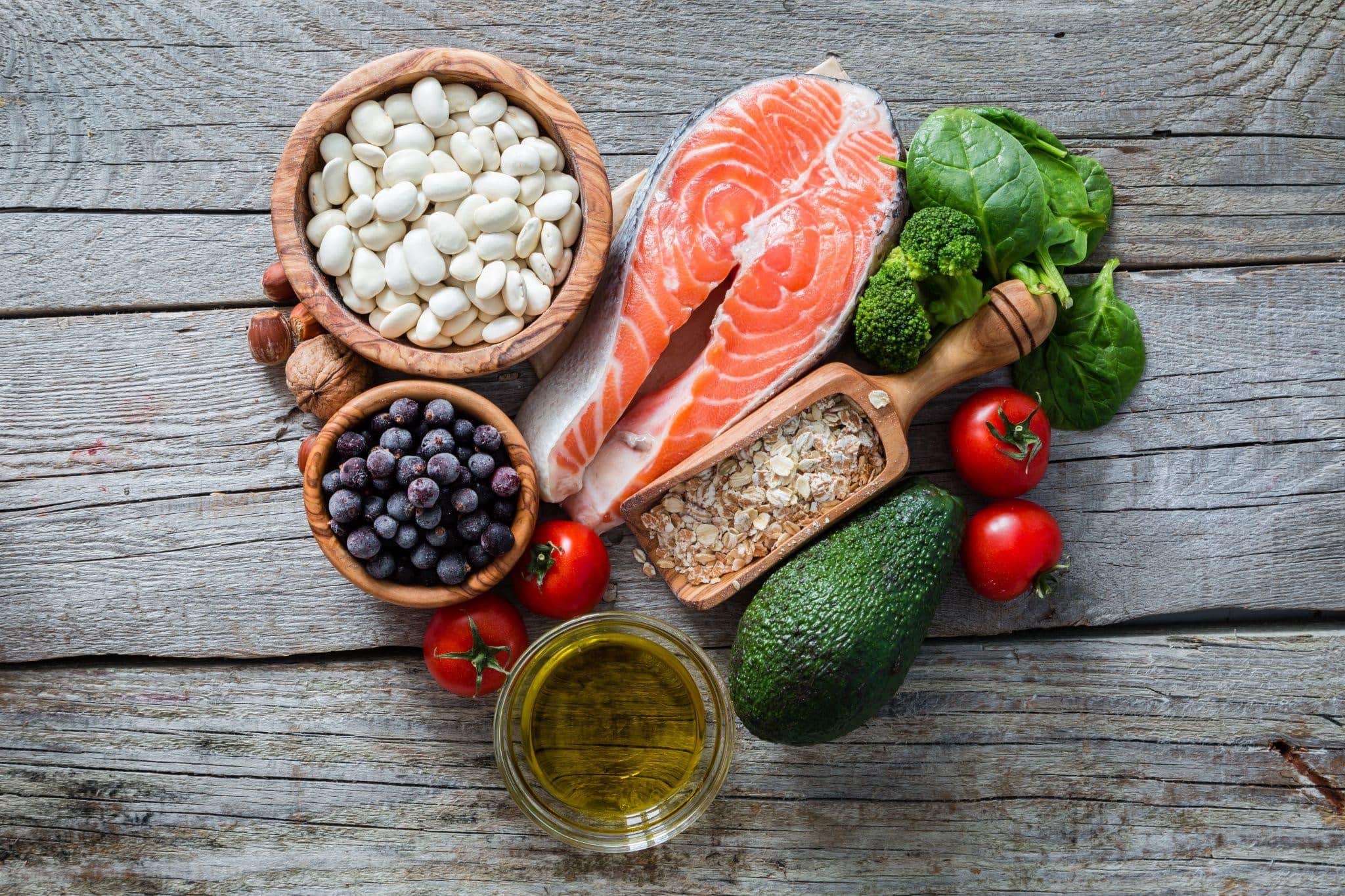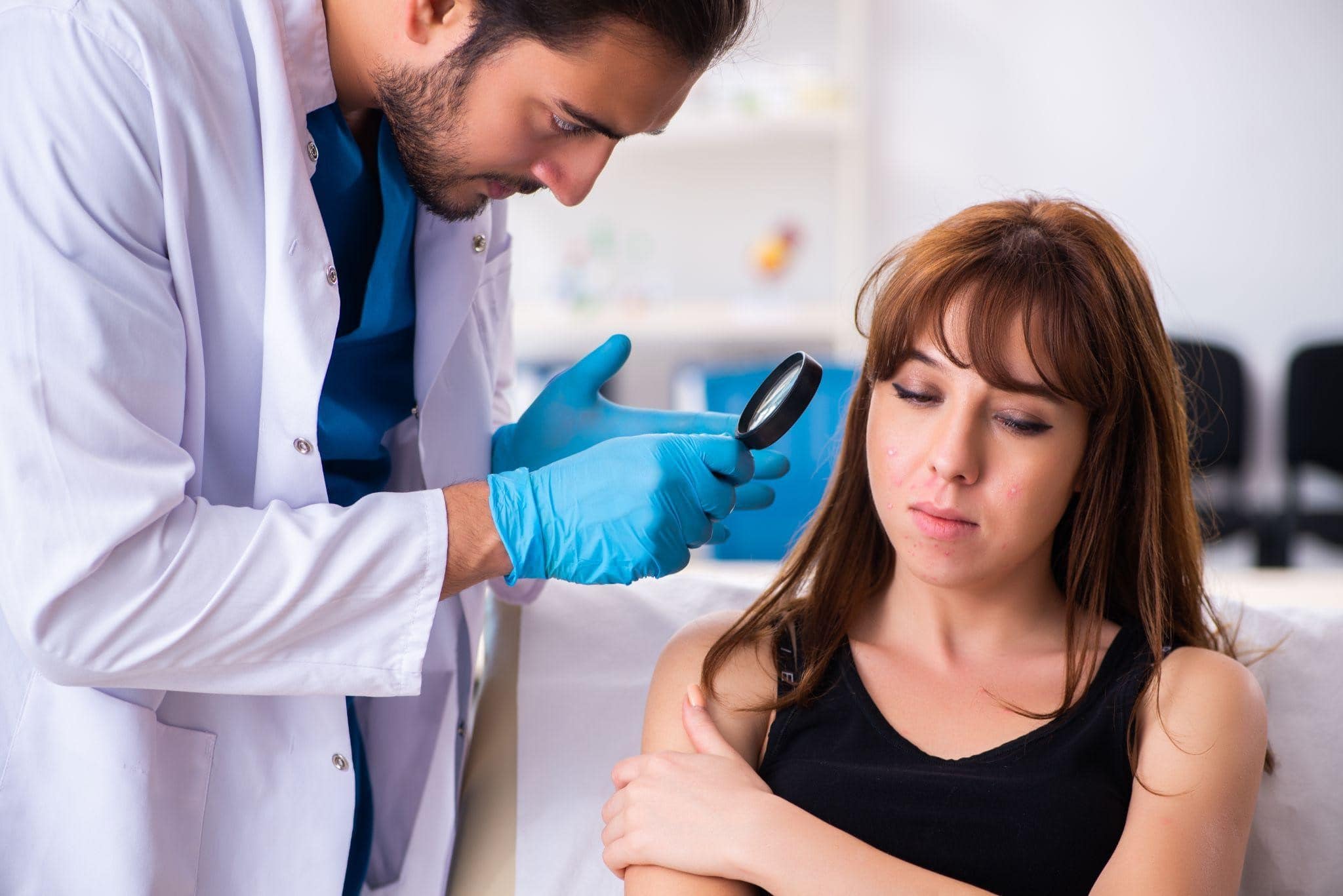Diet and Skincare: How Big an Impact Does Diet Have on Your Skin’s Health?
Table of Contents

When it comes to skin health, I often tell my patients that diet affects everything. The skin is your body’s largest organ, so how you eat can significantly affect your skin’s health. A nutritional diet can improve how you look and feel inside and out.
At Dermatology, Surgery & Cosmetics of Northeast Ohio, we aim to help our patients improve their skin conditions without making major life changes. Below, we will discuss how eating a balanced diet can promote healthy skin.
How Does Your Daily Diet Affect Your Skin?
What you eat each day can cause your skin to react in different ways. Some people might experience inflammation, redness, puffiness, eczema, acne breakouts, increased signs of aging, and more.
Humans rely on a balanced diet of water, grains, fruits, vegetables, healthy fats, and protein. If your daily nutritional intake lacks significant food groups, your skin won’t get the vitamins and minerals needed to remain plump, moisturized, and firm.
Does Diet Affect Skin Conditions?
People with common inflammatory skin conditions like psoriasis and eczema frequently report that certain food groups cause flare-ups. Many of our patients learn what triggers their skin so they can avoid those items when possible.
For example, many patients suffering from rosacea find success by avoiding red wine, coffee, and chocolate.
In general, high-sugar foods, dairy, or fatty foods can worsen certain skin diseases or acne severity.
How Strongly Does Diet Affect Your Skin’s Health?
The impact of diet on your skin health varies from person to person. Some people can eat anything they want and never experience a problem, while others might drink one glass of wine and experience a hot, flushed face.
If you have no skin issues, you shouldn’t worry too much about your diet. If you have diagnosed conditions you’re struggling to resolve, consider a simple elimination diet where you cut out different food groups one at a time to locate your potential problem.
Why Your Diet Is Important for Healthy Skin
Like sitting in the sun, the food you eat is an environmental factor affecting your skin. A well-balanced diet can promote healthy skin, reduce chronic conditions, and help prevent early aging. Nourishing your body with vitamins, minerals, and adequate water per day can promote better skin health.

Can a Healthy Diet Cure Skin Problems?
A healthy diet may not entirely cure skin problems, but it can help. Eating well-balanced whole foods will only improve your overall health, so you have zero risks. Improving what you eat can also help with general health issues like:
- High blood pressure
- Heart disease
- High cholesterol
Conditions associated with poor diets are some of the leading causes of death in the United States. Improving your diet for your skin could extend your life.
Aside from food, increasing your water intake helps your liver function, reduces kidney stones, and improves your skin’s general appearance and feel.
Can What You Eat Slow the Signs of Aging?
Many medical professionals debate whether or not your diet can impact your skin’s aging since we don’t yet have many studies on the topic. Some advocate for collagen supplements to help promote nail, hair, and skin cell growth. While we cannot confirm collagen’s effects, I usually tell my patients that it won’t hurt.
You can also try increasing your daily water intake to add volume to your skin and decrease those fine wrinkles. A diet rich in antioxidants with a solid variety of fruits and vegetables can help your skin recover from years of sun damage.
What Foods Affect Your Skin the Most?
The types of foods that affect your skin the most depend on the issues that you have. For example, here are a few foods that often worsen the following common skin conditions:
- Acne: Foods with a lot of fat or sugar, or foods that are high on the glycemic index
- Rosacea: Wine, alcohol, coffee, and other caffeinated products
- Psoriasis: Processed foods with high sugar or fat content
So what food groups can help these conditions?
- Whole foods (organic and non-processed)
- Fresh fruits and vegetables
- Non-processed meat
- White meat and fish
- Healthy fats
- Water
Do Fatty Acid Foods Help Clear Skin?
You might feel confused since we’ve stated that some fats can harm your skin while fatty acid foods can help. There are different types of fat, and some fats are better for your body than others.
For example, fried food typically has high levels of saturated fat, which will likely not benefit your skin. Foods like walnuts or salmon filets have omega-3 fatty acids that are essential to many bodily functions, including your skin cells’ health.
When it comes to choosing healthy fats, opt for:
- Avocados
- Fish (salmon, tuna, trout, herring, etc.)
- Nuts (almonds, peanuts, walnuts, etc.)
- Seeds (flaxseeds, pumpkin seeds, sunflower seeds, etc.)
- Dark chocolate
- Eggs
- Olive oil
Which Foods Help Your Skin the Most?
Aside from fatty foods, you can also incorporate the following into your diet to improve your skin and overall health:
- Grapes
- Broccoli
- Sweet potatoes
- Tomatoes
- Bell peppers
- Soy
- Green tea
- Vitamin C supplements
- Kiwis
- Spinach
- Yogurt
- Oranges
- Carrots
- Kale
- Whole grains

What Foods Can Damage or Negatively Affect Your Skin?
Food affects everyone differently, though certain types negatively impact people’s skin more often than not. If you wish to prevent your conditioning from worsening, or you want to work on maintaining healthy skin, you should try to avoid junk food and sugary products.
Junk foods, or highly-processed snacks, typically have a lot of saturated fats, sodium, and unnecessary chemicals that don’t give your body any nutrients. By eating junk foods, you’re missing an excellent opportunity to nourish your body with what it needs. Instead, try snacking on some of the food items we listed above.
Sugary foods can spike your cortisol levels, leading to acne and other skin conditions. You don’t have to eliminate sugar completely, but try incorporating it into more balanced meals. For example, when you digest sugar with protein, you can prevent cortisol spikes and enjoy your sweets without the unwanted effects.
In general, the key to maintaining a healthy diet is balance. If you cut out any major food groups, you might feel tempted to fall back into old cycles. Rather than quitting sugar and junk food cold turkey, focus on what healthy foods you can add to meet your nutritional needs better.
How Can a Dermatologist Help?
Navigating diet changes and skin health alone is challenging. You don’t have to manage your skin health alone. At Dermatology, Surgery & Cosmetics of Northeast Ohio, we provide comprehensive treatment plans for each patient’s needs and lifestyle.
Call our Medina or Canton offices at (330) 239-4350 or contact us here to schedule an appointment with one of our board-certified dermatologists today.
